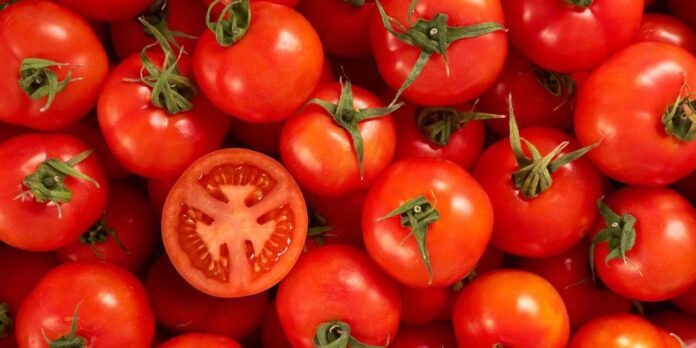The Minister of Agriculture and Rural Development, Dr Mohammad Abubakar has expressed concern that Nigeria is not one of the leading tomato exporting countries, despite being rated as one of the leading producers of in Africa.
The Minister who stated on Thursday at the launch of HortiNigeria Project in Abuja, attributed this to challenges of low yield resulting from seed type use.
It would be recalled that the Embassy of the Kingdom of the Netherlands in Nigeria yesterday, announced a target of €9.7 million income generation for 60,000 smallholder farmers in a four-year project tagged: ‘HortiNigeria’.
The project awarded to International Fertiliser Development Center (IFDC) and its consortium partners East-West seed Knowledge Transfer (EWS-KT), Wageningen University and Research (WUR) and KIT Royal Tropical Institute, is implemented in Kano, Kaduna, Ogun and Oyo States, focusing on tomato, okra, onion, and pepper value chains.
According to the Minister, Nigeria’s various ecologies , soil and climatic conditions are suitable for production of horticultural crops.
The climate conditions, he said, confer an immense competitive advantage and potential to have a leading role in tomato production and trade.
While explaining that HortiNigeria is yet another opportunity to promote activities of the horticultural sub-sector, he said the government is looking forward to catalysing increased productivity and exposure of 60,000 smallholder farmers in the four states.
He added that the project would facilitate 200 business to business linkage and 100 business partnership.
In his remarks, Dutch Ambassador to Nigeria, Harry van Dijk said the horticulture sector in Nigeria offers many opportunities as local market demand for vegetables largely exceeds local production, with an estimated supply gap of 13 million metric tons.
He noted that the project will contribute to a more sustainable and inclusive horticulture system in Nigeria.
According to him, the sector employs a high number of women and youth and increased horticultural production. It will lead to better availability and affordability of nutritious foods.
“The focus is on vegetables for domestic markets and the program has four components which are interconnected.
“The first component strives towards increasing productivity and incomes of 60.000 smallholder farmers in Kano and Kaduna: in an environmentally sustainable way.
“The second component pilots production systems innovations, in Ogun and Oyo states: supporting greenhouse technologies and offering connections to Lagos markets.
“The third component focuses on increasing access to finance throughout vegetable value chains: mobilizing EUR 6 million of private capital for farmers, traders, processors and SMEs,
while the fourth component enhances sector coordination and business-to-business linkages: contributing to improvements in federal and state horticultural policies,” he added.




